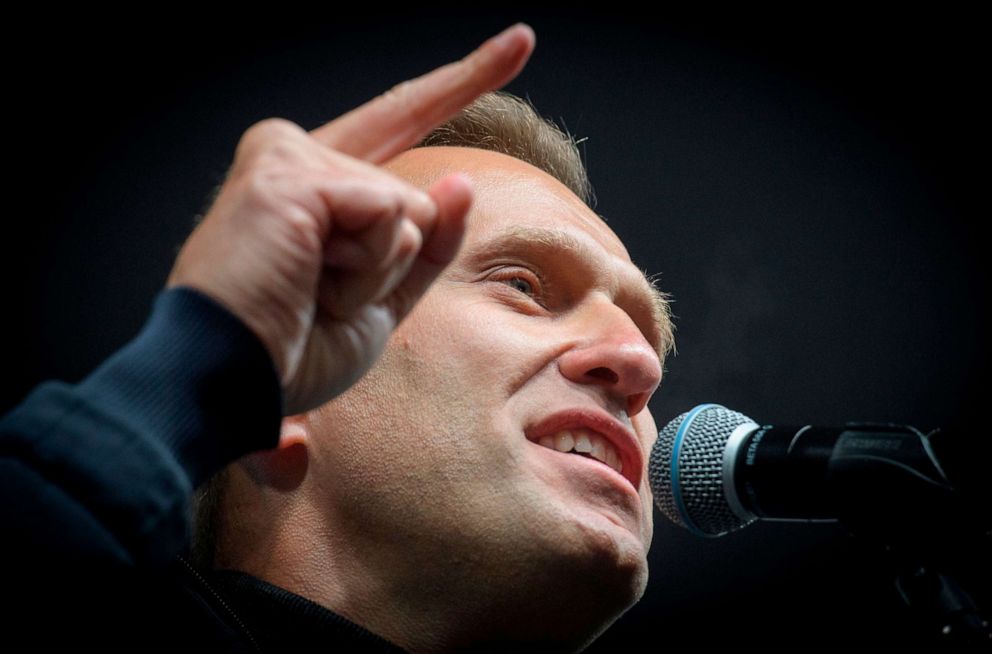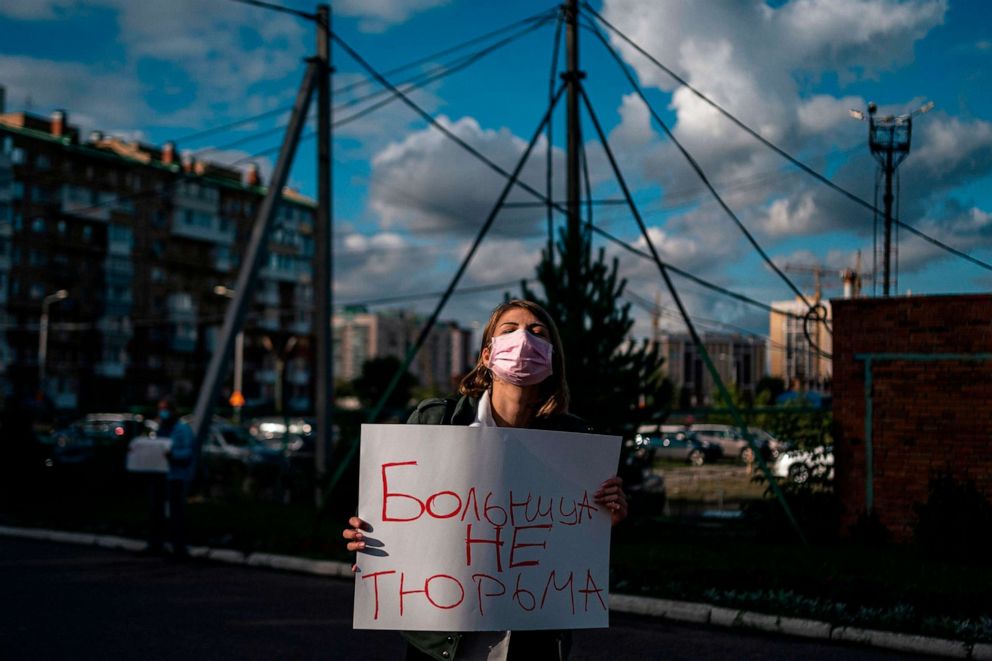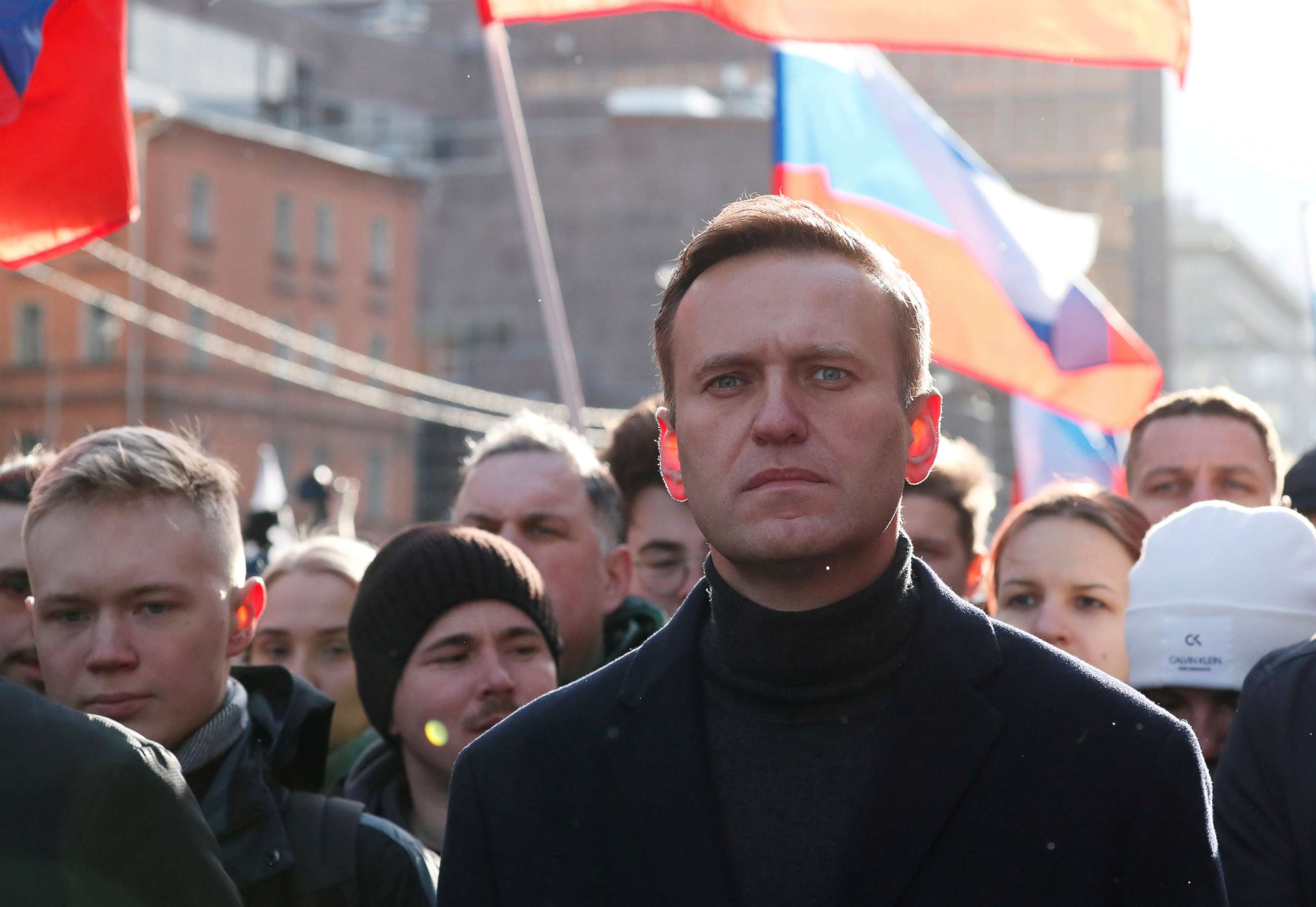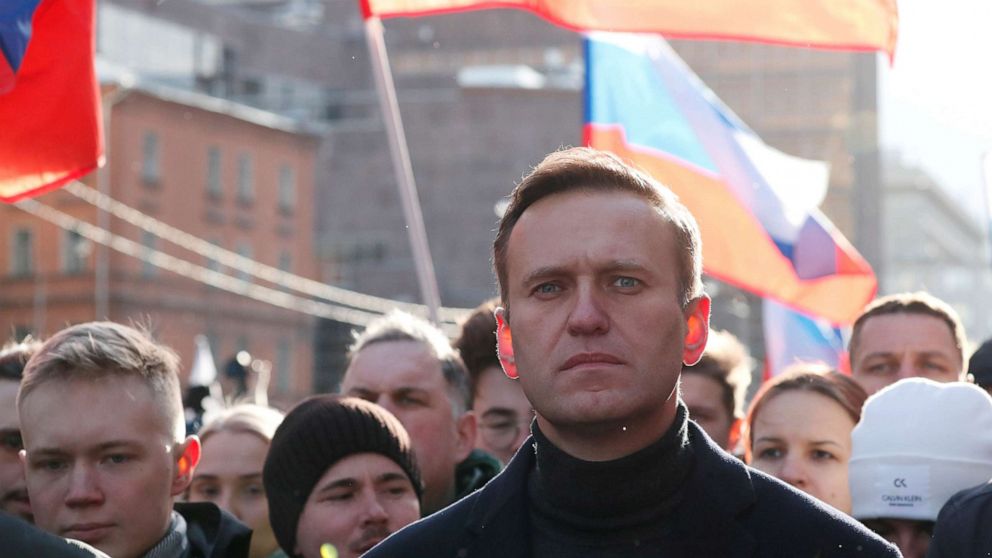Before Navalny, a long history of Russian poisonings
The suspected poisoning of Russia's best-known opposition leader Alexey Navalny is the latest to happen to a long line of Kremlin opponents.
The Kremlin, as it has with Navalny’s case, has denied any involvement but poison has long been a weapon used by the Russian security services and employed by the Soviet Union under president Vladimir Putin.
In some cases evidence has emerged seeming to strongly link them to the Russian state, while others have remained mysterious.
The Kremlin’s spokesman Dmitry Peskov on Monday told reporters he disagreed there was a “trend” of Kremlin opponents being poisoned.
"You’ll agree that in many country in the world, everyday a lot of poisonings happen,” Peskov said, saying it was necessary to look at every case individually.

But the list of those who have troubled the Russian government or security services and then suffered poisoning is lengthy.
Within its first years, the Soviet Union developed a secret poison lab within its security services. The lab, known among security agents as “kamera” -- meaning “the chamber” in Russian -- for decades specialized in developing poisons difficult to detect and, under Joseph Stalin, tested its products on gulag prisoners, according to Soviet defectors.
Boris Voldarsky, a former officer from the Soviet military intelligence agency, the GRU, who has written a book on the KGB poison program has written there is one constant in the lab's products.
“They must make the victim's death or illness appear natural or at least produce symptoms that will baffle doctors and forensic investigators. To this end the Kamera developed its defining specialty: combining known poisons into original and untraceable forms," Voldarsky wrote in an article for The Wall Street Journal in 2005.
There were several famous poisoning episodes during the Cold War. Georgi Markov, a Bulgarian dissident died after a KGB agent pricked him with a ricin-tipped umbrella. In 1957, Nikolai Khokhlov, a KGB defector, came close to death after drinking a cup of coffee laced with an unknown type of thallium.
Poisonings have occurred under Putin almost since the start of his rule. In 2004, Viktor Yushchenko, a candidate who ran against a Kremlin-favored incumbent for Ukraine's presidency was poisoned with dioxin, leaving him disfigured.
The same year, the celebrated investigative journalist, Anna Politkovskaya fell suddenly ill and lost consciousness after drinking a cup of tea while flying to the Russian city of Beslan during the school siege there. She survived, but was shot dead two years later, on Putin’s birthday.

The two poisonings that have most closely associated Putin with poisoning internationally occurred in the U.K. In 2006, Alexander Litvinenko, a former officer from Russia’s FSB security service turned critic, died after being exposed to polonium-210, a radioactive isotope, slipped into his tea at an upscale hotel. British police later sought to charge two Russians, Dmitry Kovtun and Andrey Lugovoy and a U.K. public inquiry concluded that Putin had likely personally ordered the assassination. Russia refused to extradite the two men and Lugovoy was instead made a member of parliament.
In 2018, another former Russian intelligence officer Sergey Skripal, was nearly fatally poisoned with a nerve agent in the English town of Salisbury. The poison, which was identified by British investigators as a nerve agent, known as "Novichok", developed by the Soviet Union as part of a secret chemical weapons program. Russia again denied responsibility, but U.K. police were able to track two men, who were later identified as officers in Russian military intelligence. Both men, Anatoly Chepiga and Alexander Mishkin were found to have previously received Russia’s highest state honor, awarded personally by Putin.
Experts have stressed that Navalny may not have been poisoned at the Kremlin’s order. Navalny, who has made his name with high-profile investigations of alleged corruption among powerful Russians, has many enemies.
The choice of poison though usually means the involvement of Russia's security services, whether acting for the state or corruptly for others.
“No matter whether it’s an attempted murder or just scare tactics, poisonings are pretty much always somehow connected to the security services,” Tatiana Stanovaya, a non-resident scholar at the Carnegie Moscow Center wrote last week, adding that she does not believe the Kremlin ordered the assassination attempt. She wrote she believes the attack on Navalny was likely carried out by powerful figures acting on their initiative, either indifferent to the Kremlin's reaction or believing it would please it. .
Navalny's case for now has drawn the closest comparisons with two other suspected poisoning cases of opposition figures. Vladimir Kara-Murza, a pro-democracy activist from Open Russia, a group funded by Putin foe Mikhail Khodorkovsky, twice nearly died in 2015 and 2017 after his organs suddenly began failing. A French lab found high levels of heavy metals in his blood but was unable to identify the poison.

Petr Verzilov, a member of the protest group, Pussy Riot, two years ago suddenly fell inexplicably and critically ill. He was evacuated to Germany for treatment, kept in an induced coma, and doctors there said he had been poisoned. Verzilov survived and last week helped arrange for Navalny to be airlifted to Germany by the same Berlin-based non-profit that had aided him.
Verzilov has said his symptoms were very similar to Navalny’s and has blamed both poisonings personally on Putin.
The Charité hospital treating Navalny has said its analysis showed he is suffering from poisoning from cholinesterase inhibitors, chemicals that belong to a very broad group of substances ranging from pesticides and medication to military grade nerve agents, that includes Novichok.
Dan Kaszeta, a chemical and biological weapons expert and the author of a book on nerve agents, "Toxic", told ABC News on Tuesday that without knowing what the substance was for now it was impossible to say if whatever had poisoned Navalny had been developed in a sophisticated military lab or something more commonly available.
Andrei Soldatov, a long-time expert on the Russian security services and author of "The Compatriots," a history of Russian espionage abroad, including poisonings, said he did not believe a figure with Navalny's position in Russia could have been targeted without the Kremlin's order.
"I’ve been hearing this argument for like many years. From Politkovskaya, to Litvinenko, to Skripal. That it could not be possibly the Kremlin but someone trying to please the Kremlin," Soldatov said by phone Wednesday. "But the problem with this argument is that in 2020 the situation is not what we had in 2004, 2006. The room for any kind of unsanctioned activity from the secret services especially in such a sensitive area is very limited. It’s really difficult to imagine that somebody would dare to do something that drastic and not first secure some kind of agreement. To be sure that he or she is on the safe side."




